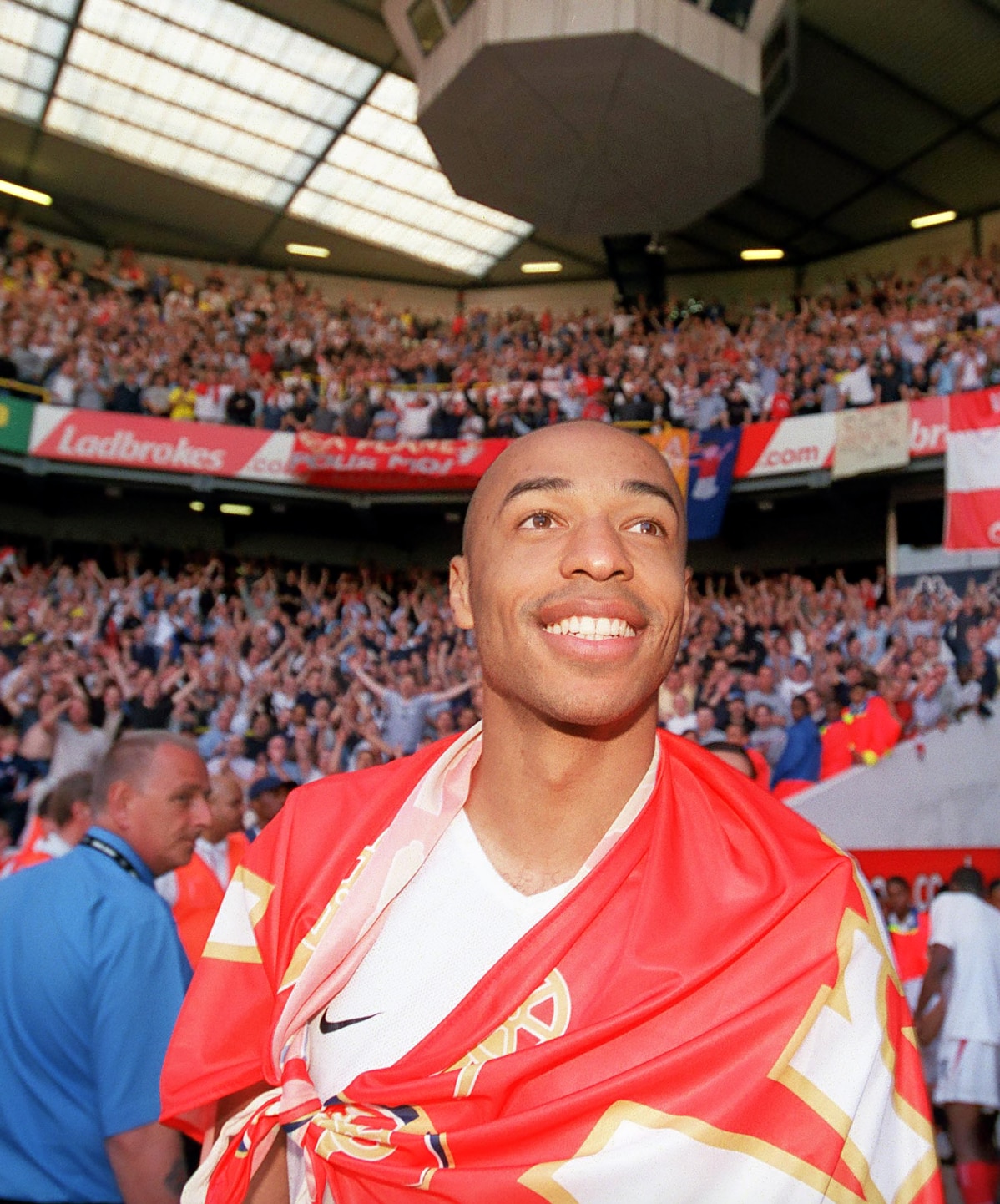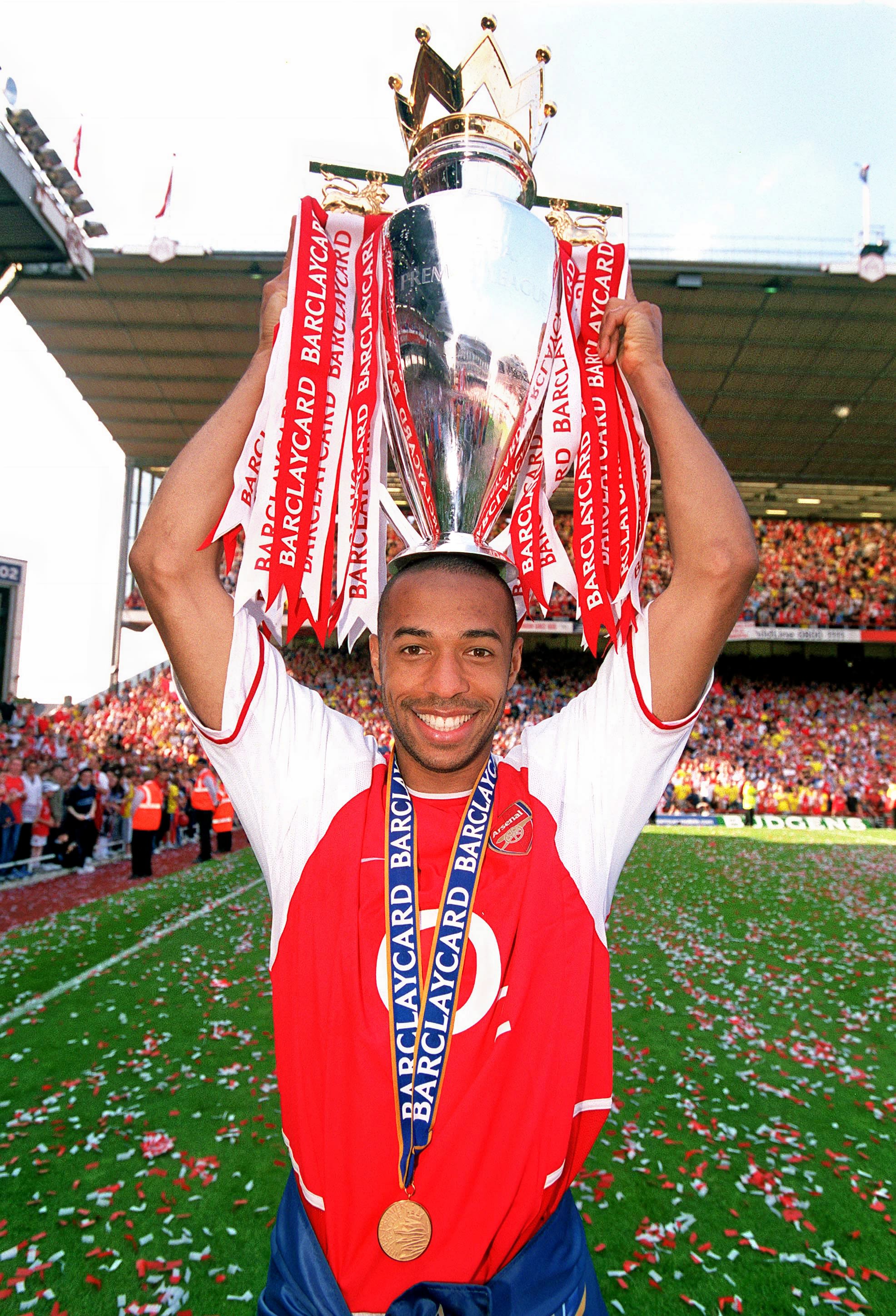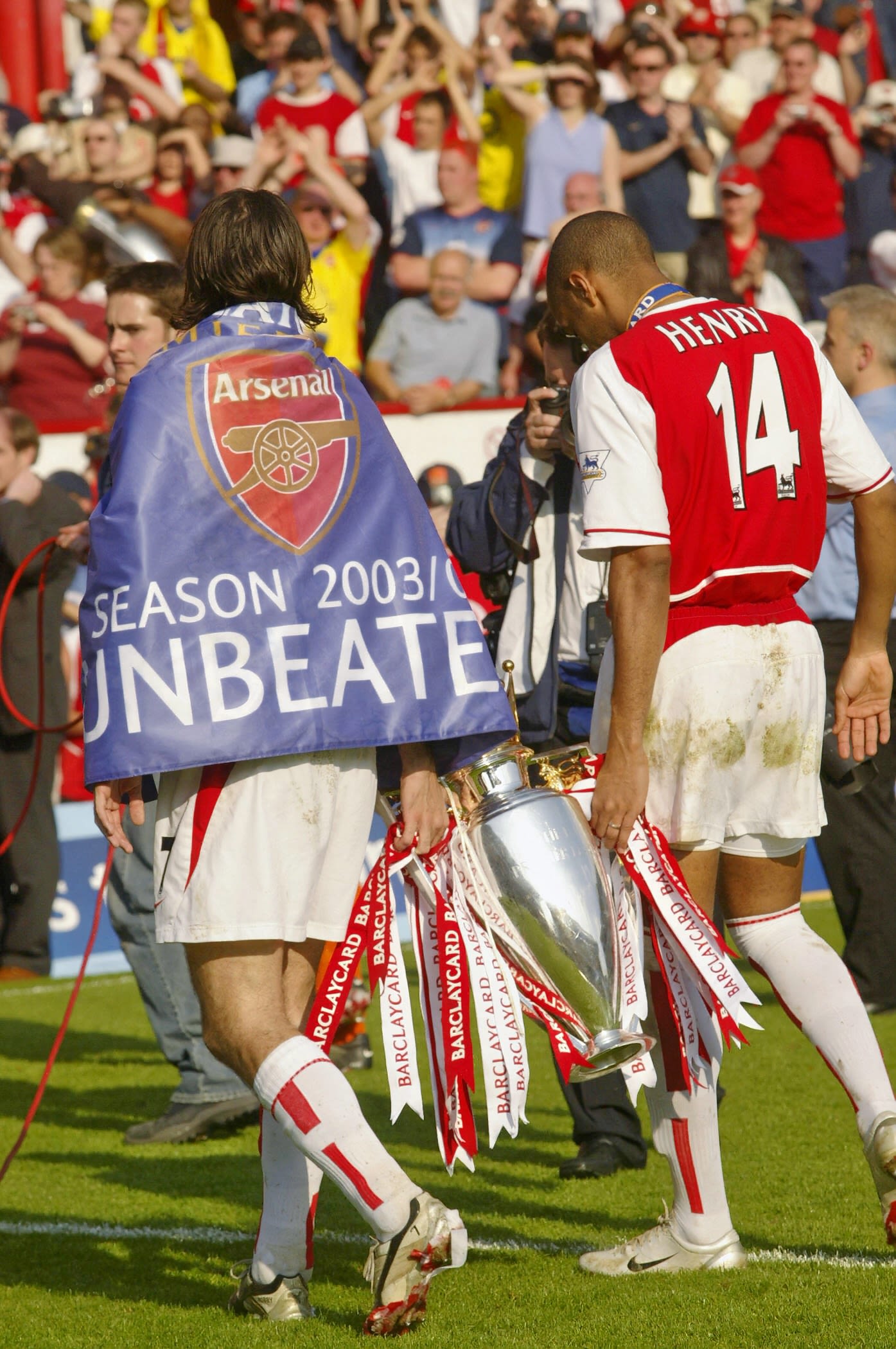Tales from the Invincibles
THIERRY HENRY
Among a galaxy of stars, one man managed to scale even greater heights than his teammates during the Invincible season.
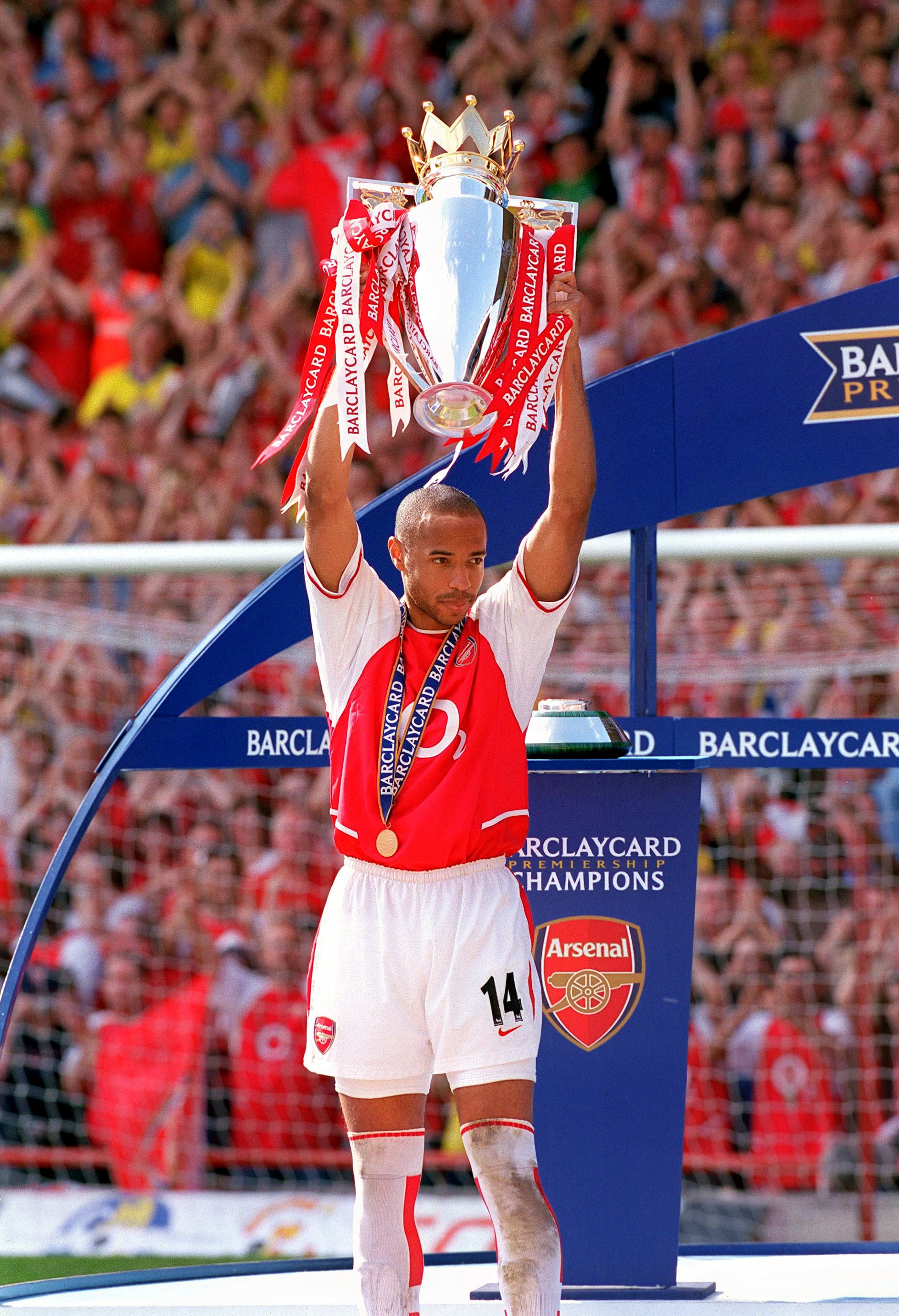
Thierry Henry was widely regarded as the best forward in world football in 2004, and at the end of the season he became the first player ever to retain both the PFA Player of the Year and Football Writers’ Association Player of the Year awards.
During the invincible season he twice won Premier League Player of the Month (in January and April) and was named in the PFA Team of the Year for the fourth season running.
He missed just one league game all season, and racked up 30 goals (and six assists) to win the Golden Boot. As a measure of his dominance in the striking stats, he had 93 shots on target that season – the next highest in the Premier League was nearly half that (48).
Thierry went on to become our all-time record goalscorer, and finally ended his Gunners career with 228 goals from 377 appearances, winning two league titles and three FA Cups. Between his two Arsenal spells he also won every honour available with Barcelona, and is now the head coach of the France under-21 side.
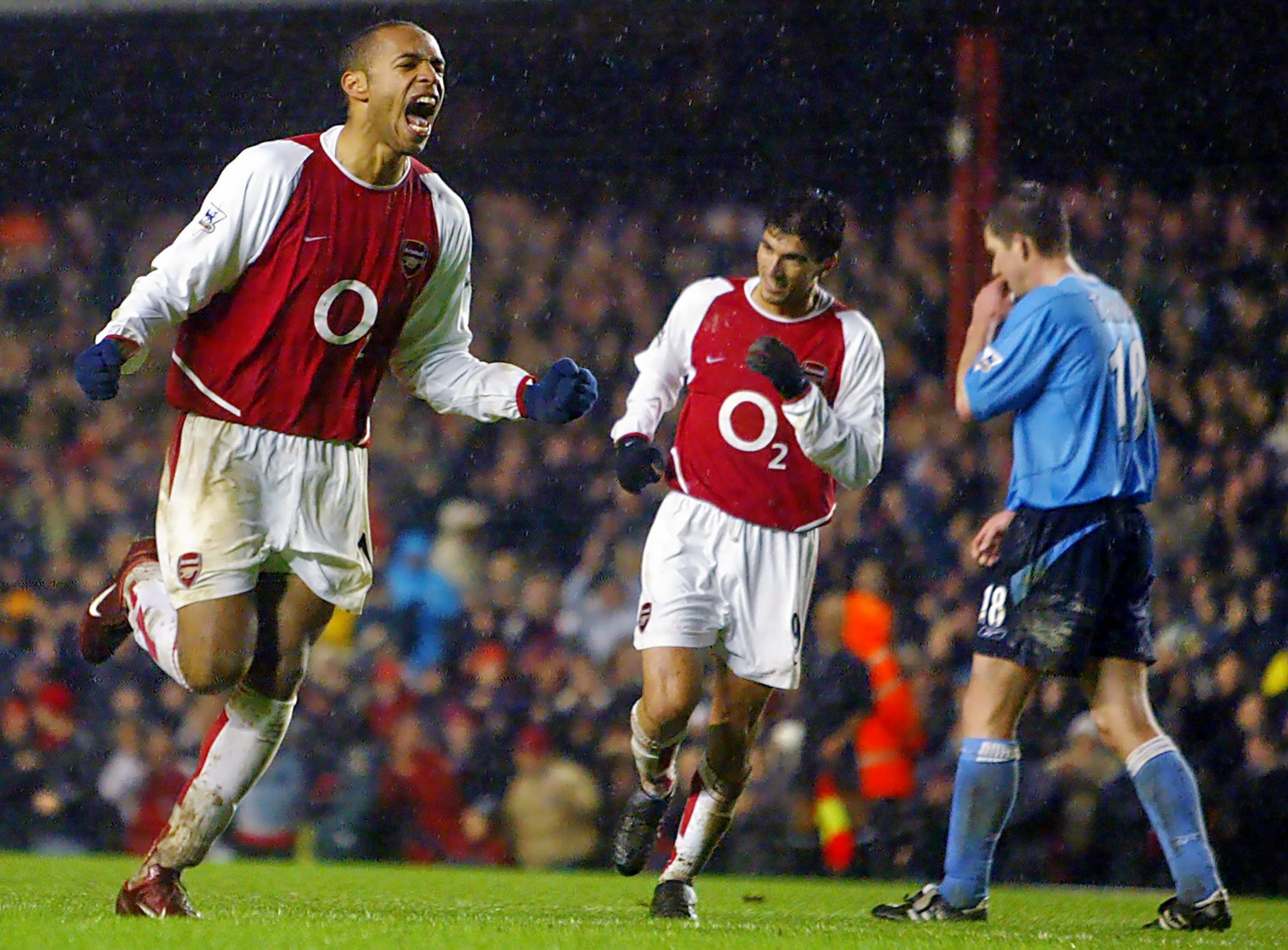
We went into that season on the back of the disappointment of not retaining the title in 2003, but were you optimistic about what the team could achieve?
First of all, people always think we lost the league at home to Leeds the previous season, that’s not where we lost it. We lost it against Bolton the week before, when we drew after being 2-0 up. So my mind was on coming back and winning the title. It wasn’t on anything else.
We had played ping pong with the title with Manchester United in those seasons, but it’s tough to retain it, and we never did. United were pretty powerful at the time, so to be able to disturb them like we did, whether in the league or in the cup, that was on my mind. I wanted to come back that season to win the league.
That summer I didn’t have any holidays, because I played the Confederations Cup with France, but when I came back at the start of the season all I was focused on was performing.
You scored in the Community Shield and then in the first league game against Everton. Did it make a big difference to you psychologically to get your first goals early in the season?
If I remember right, we went down to 10 men in that Everton game, and people forget it wasn’t an easy ride to open the season by any means. That game looked comfortable, but then we had a man sent off. We went 1-0 up and then Robert Pires got the second.
I think you just want to start well – it doesn’t matter who scores. That was one of the things about that team. It didn’t matter who scored – you could see that everybody was passing to everybody just trying to score goals for the team.
The most important thing was not that I scored, but that we scored. Obviously the striker will be more often at the end of moves, but it wasn’t about scoring, it was about doing my job. But yes, that first game was tough.
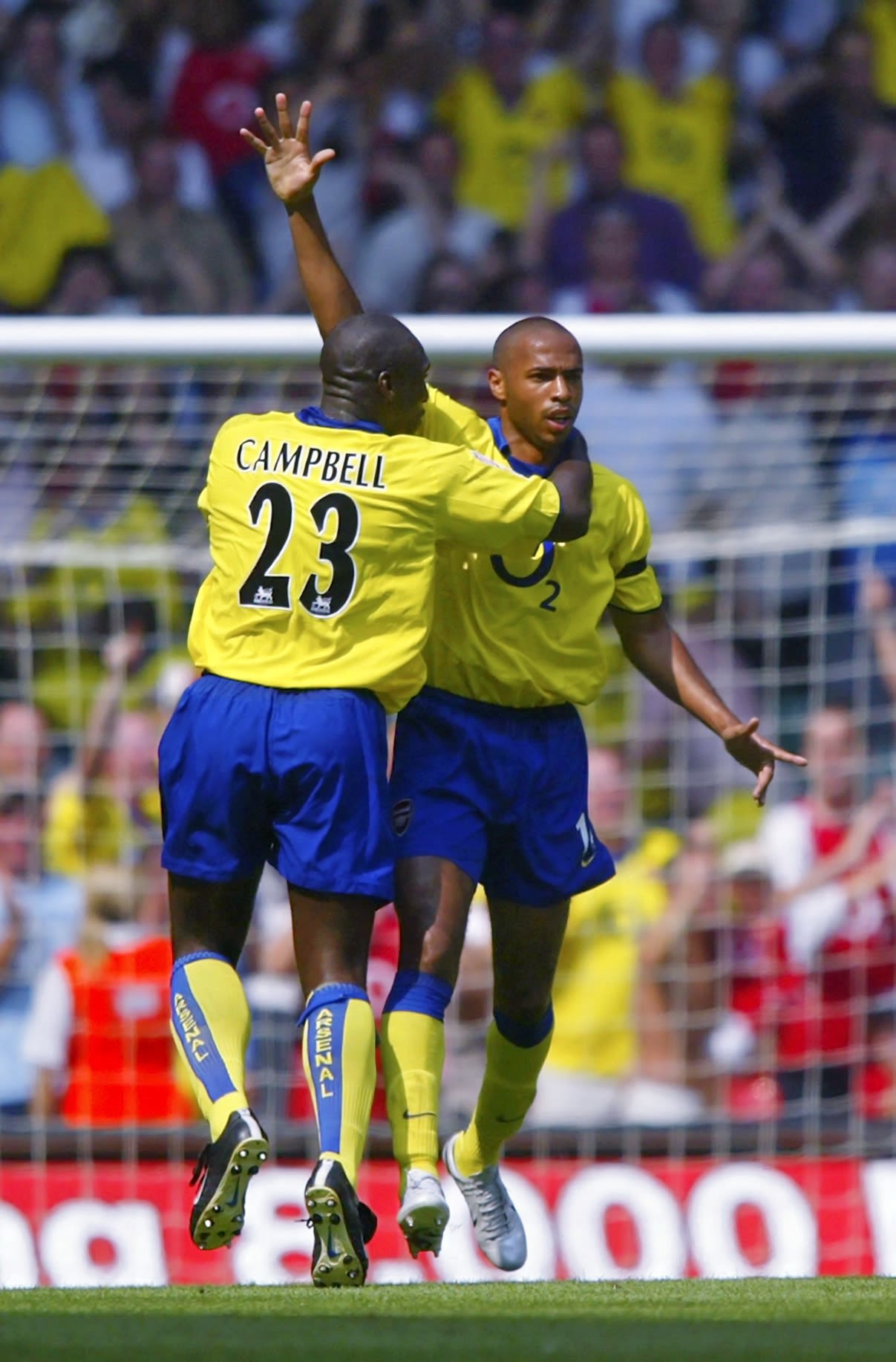
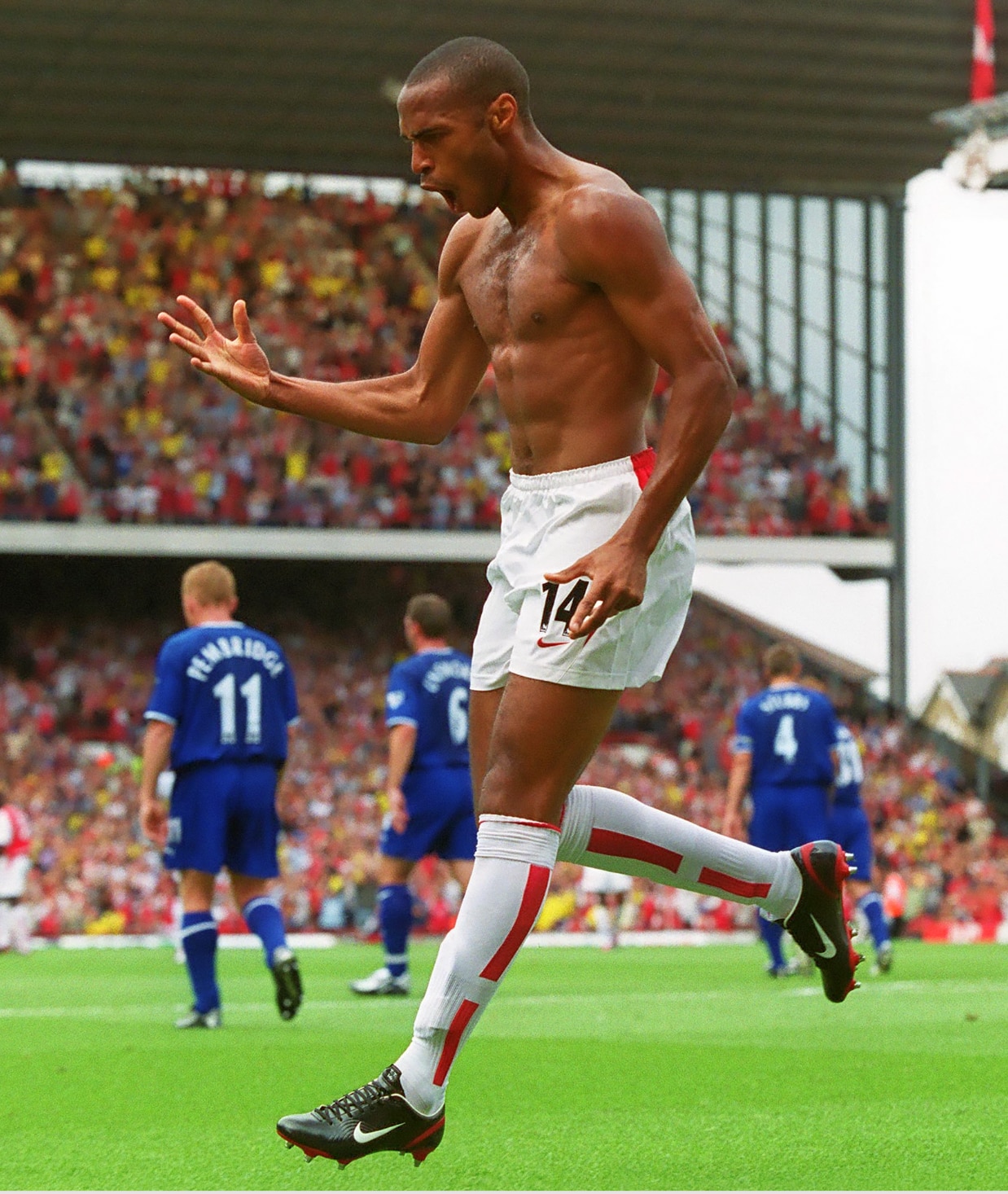
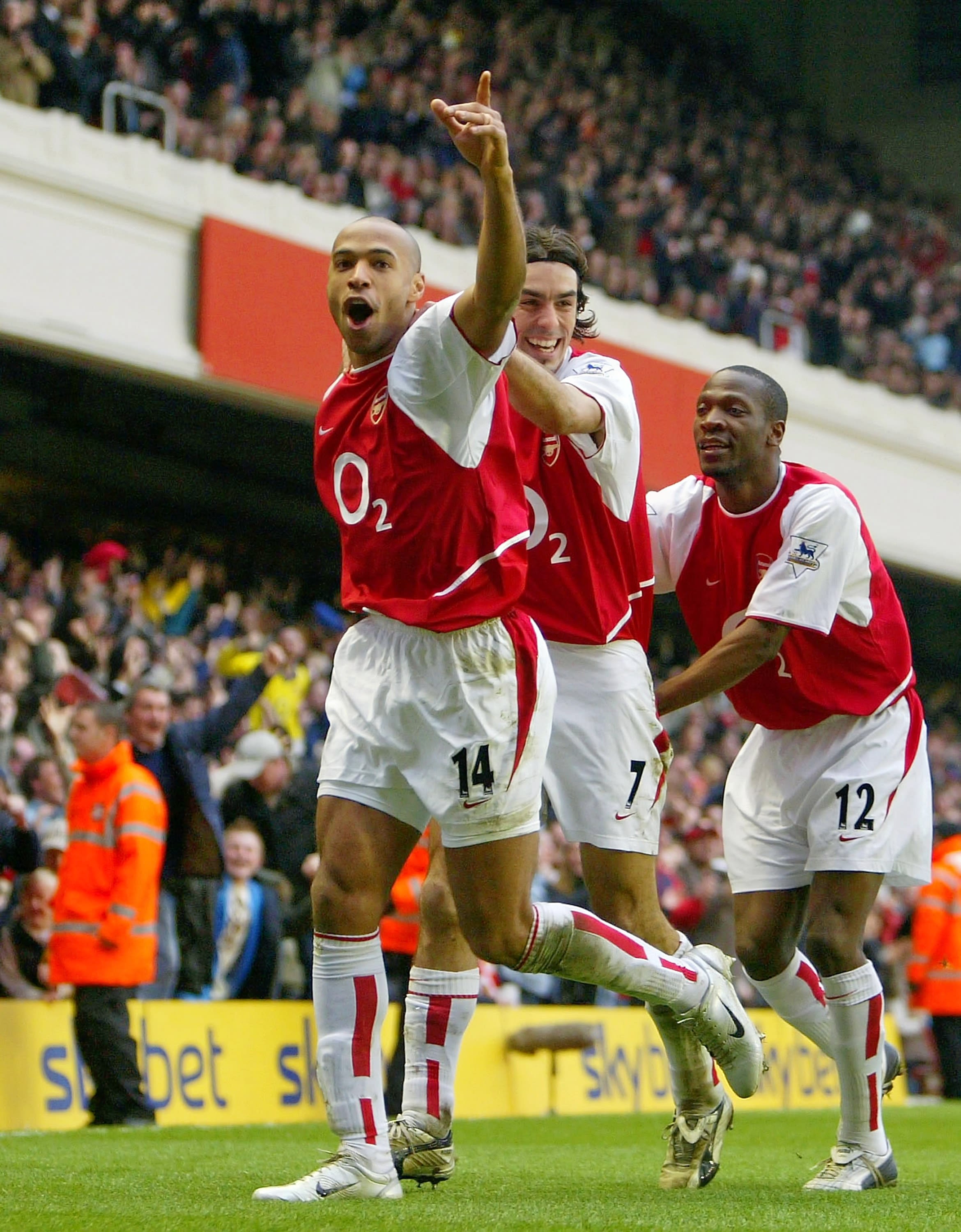
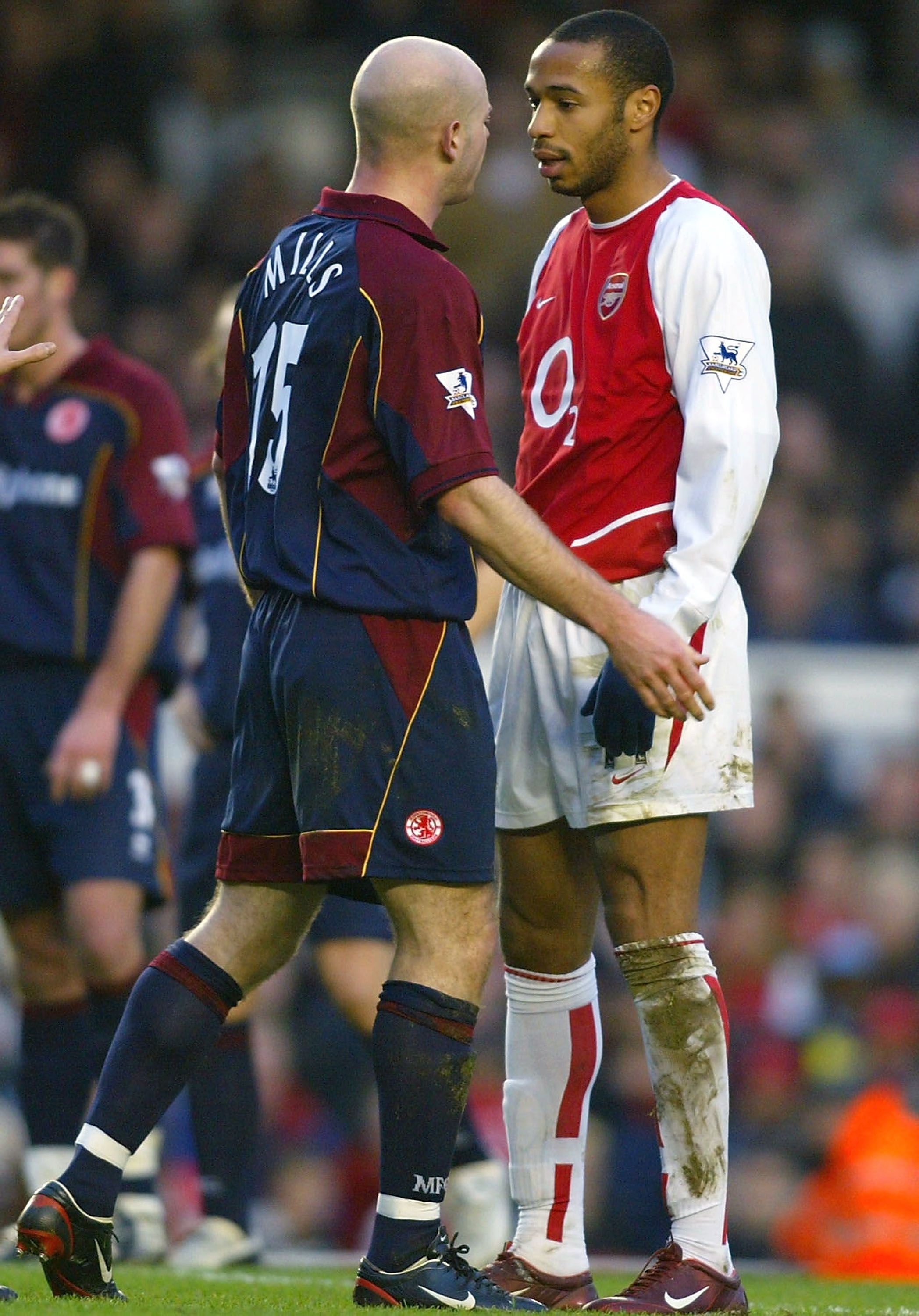
We faced Manchester United away early in that season. Would you rather those games come later in the season, because they could have such a big impact in how the campaign panned out?
To me, it didn’t really matter. I’m not sure what our record against them was during my time, but I feel like we had a winning record, even in the cup, if you combine everything. Where we lost the league was often against other teams – like Bolton as I said before.
Remember my header against United in 2007? We beat them twice that season but finished 20 points behind them. So it was not always just the United game that was important. But yes, at that time, it was us against them and I think everybody in the country saw it as the game.
At times they weren’t even football games, they were battles. This game we are talking about, I’ve heard people say that our reaction at the end was just because Ruud van Nistelrooy missed the penalty. Well yes, we were pleased about that of course, but what you saw from us was because Van Nistelrooy had tried to get players sent off for the whole day.
Reflecting on it 20 years later, what do you think when you look back at the footage of what happened at the end of the game?
Well, I think everybody would have been sent off today! In fact if you go back to a lot of the games in the Prem back in the day, who would have been playing? People would have been sent off in the tunnel! Everything is a foul now. I keep saying that the dribblers back in the day, if they played now, they would enjoy it. The first tackle on them is a foul after five minutes. They would be like: “Wow, you are allowed to dribble now?! OK, let’s go!”
My point is you can’t compare the game now to before. Some defenders would have got sent off nearly every game, and even some of the strikers, because I think that season the guy who committed the most fouls was Kevin Davies. So you cannot compare. All you can say is we were a real team. Good, bad or acceptable – We. Were. A. Team.
If a team wanted to play against us, we could play. You wanted a fight, we could do that too. I’m not going to say I was the fighter or the hard guy, but the team was always going to stand up for each other. Right or wrong. It’s not what you should see, but that particular moment it was a case of “my teammates before you”.
“The cannon means something. Arsenal means something. And that’s what they let me know. I took that and passed it on"
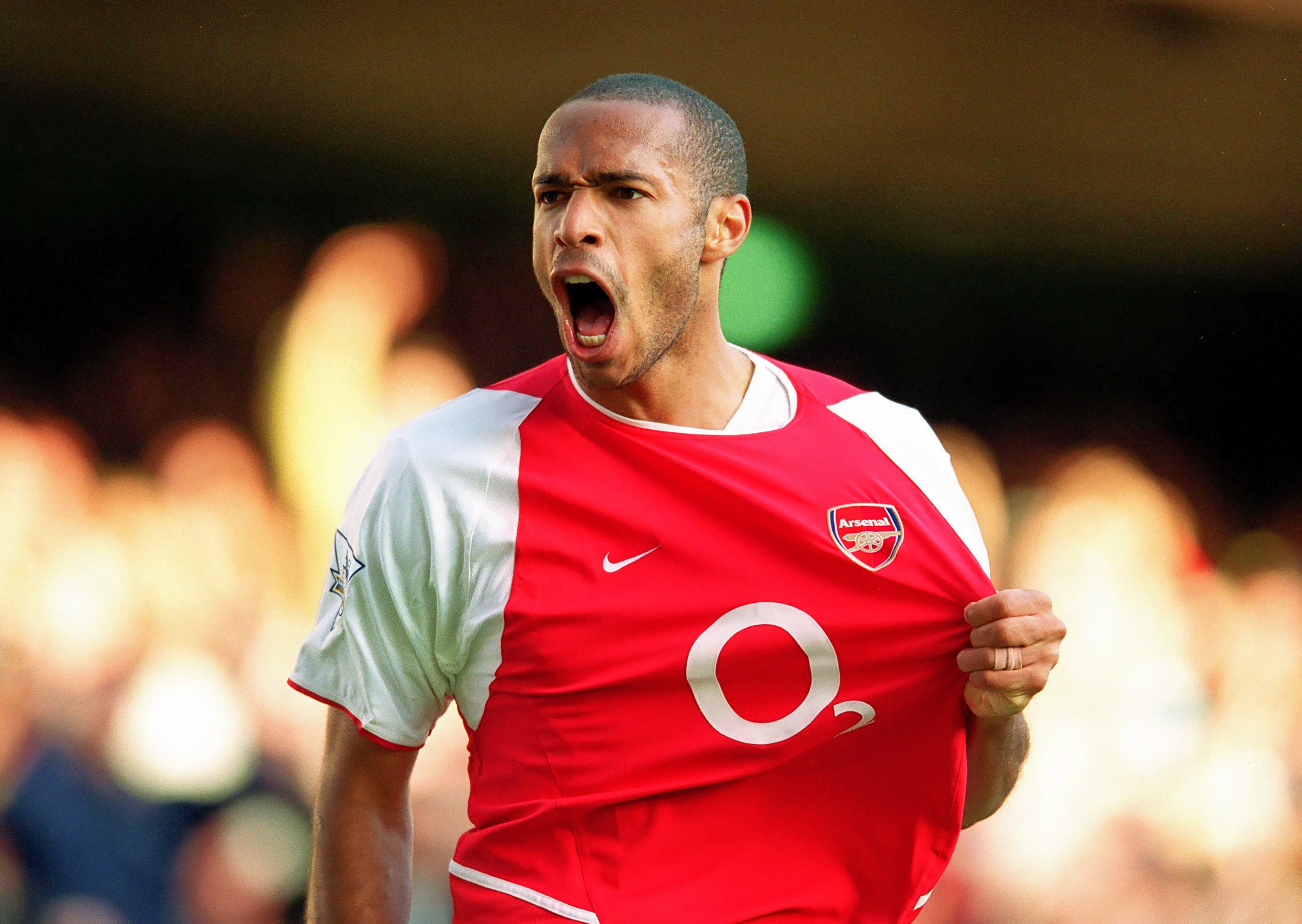
How did you approach the role of being a senior player that year, and helping the squad players compete for places in a very competitive team?
I just saw it as a natural thing to do, exactly as the old guard had done for me when I arrived. Sometimes we were a bit rough with them – in training, or when we were talking. If they didn’t do their job, we let them know!
Maybe it was a different time and that sort of stuff isn’t said in the dressing room now, but I’m talking about back then. When I first arrived, Nigel Winterburn, Lee Dixon, Martin Keown, Tony Adams, David Seaman, Ray Parlour – they were not there to be nice to you! It was never going to be just a jog in the park - no no no.
The cannon means something. Arsenal means something. And that’s what they let me know. I took that and passed it on. Sometimes you’ve got to be the guy’s best friend, and at times you’ve got to be hard, because that’s how it was. That’s how I saw it–my duty was to pass on what Arsenal is all about.
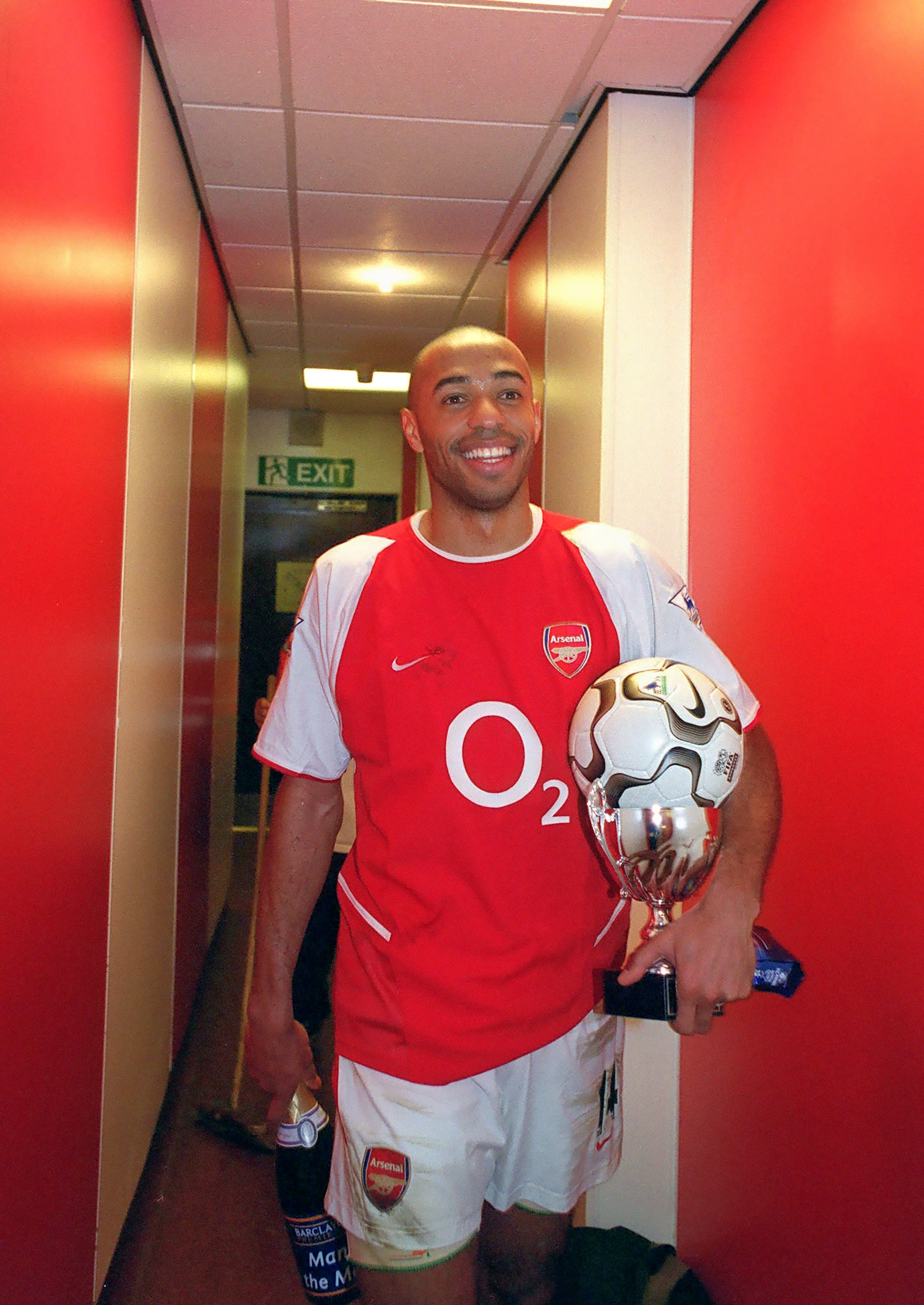
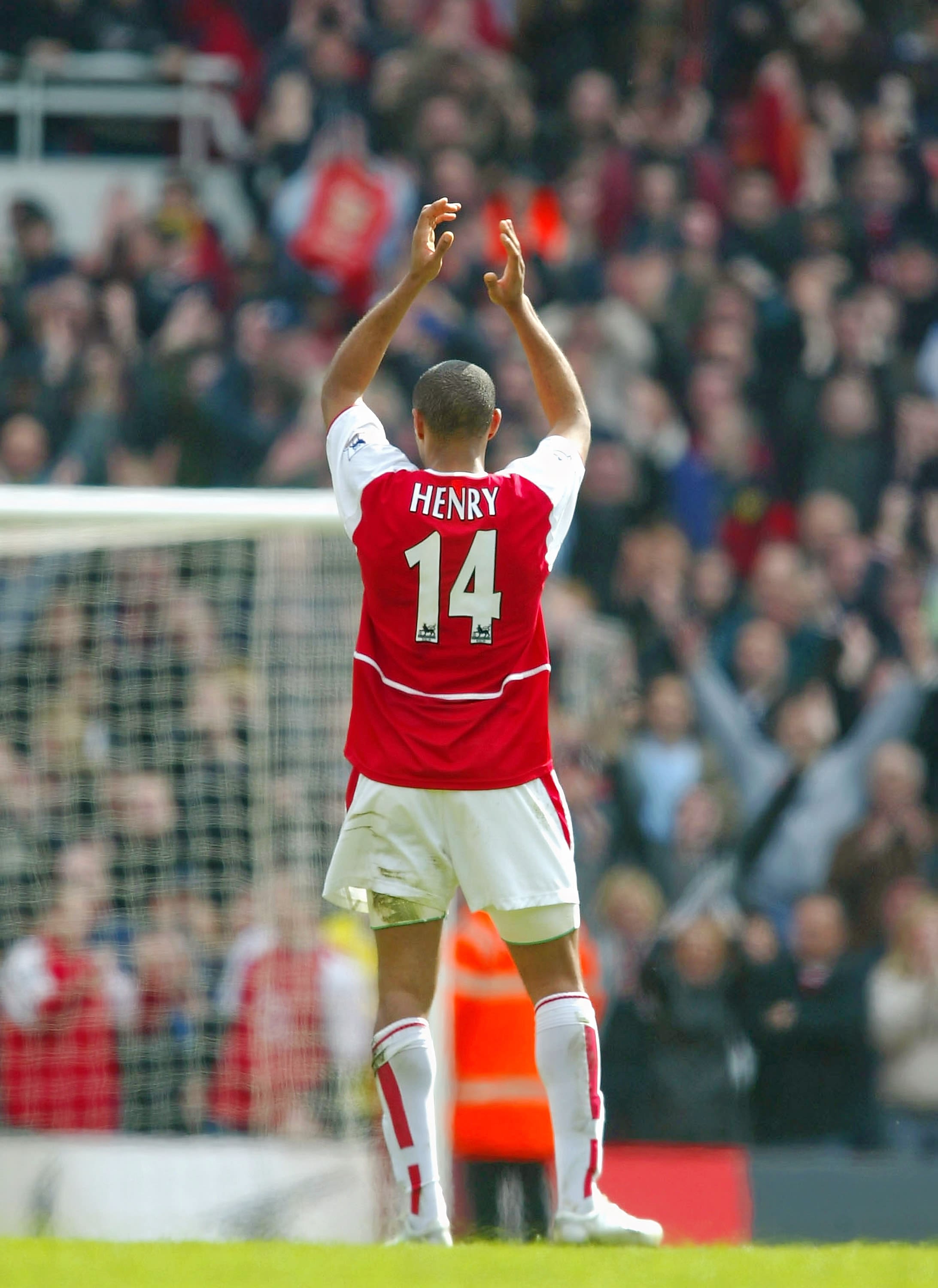
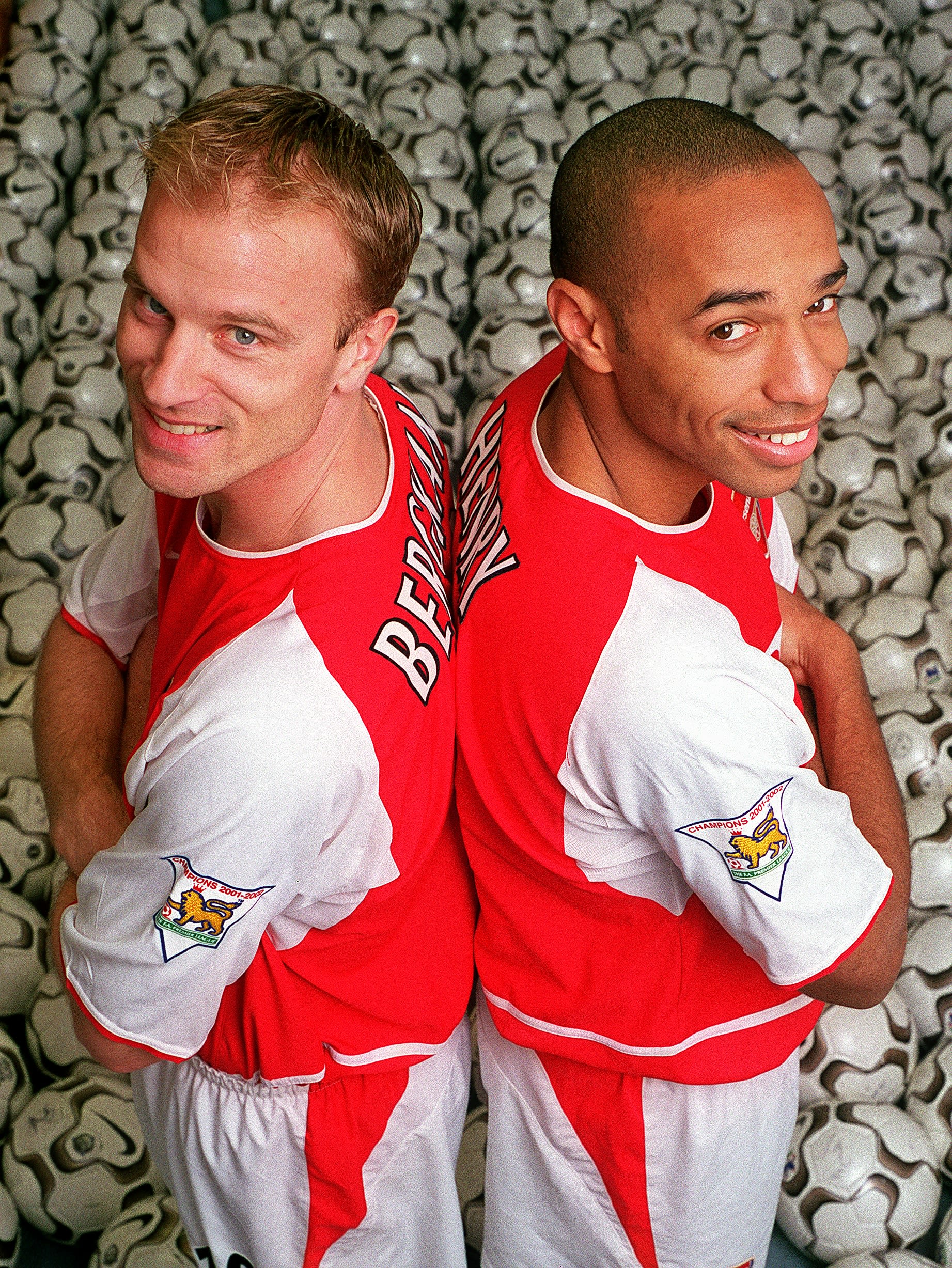
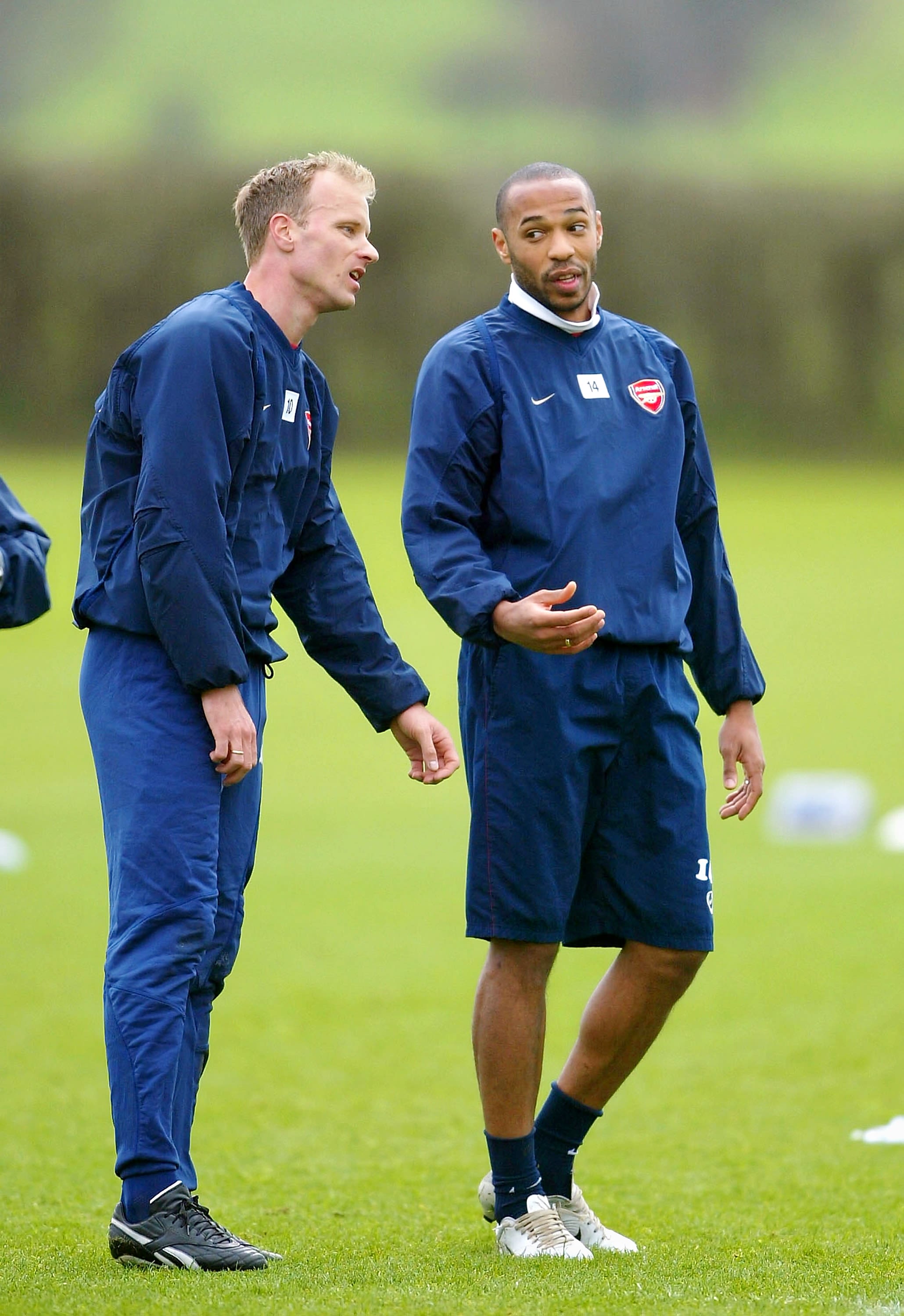
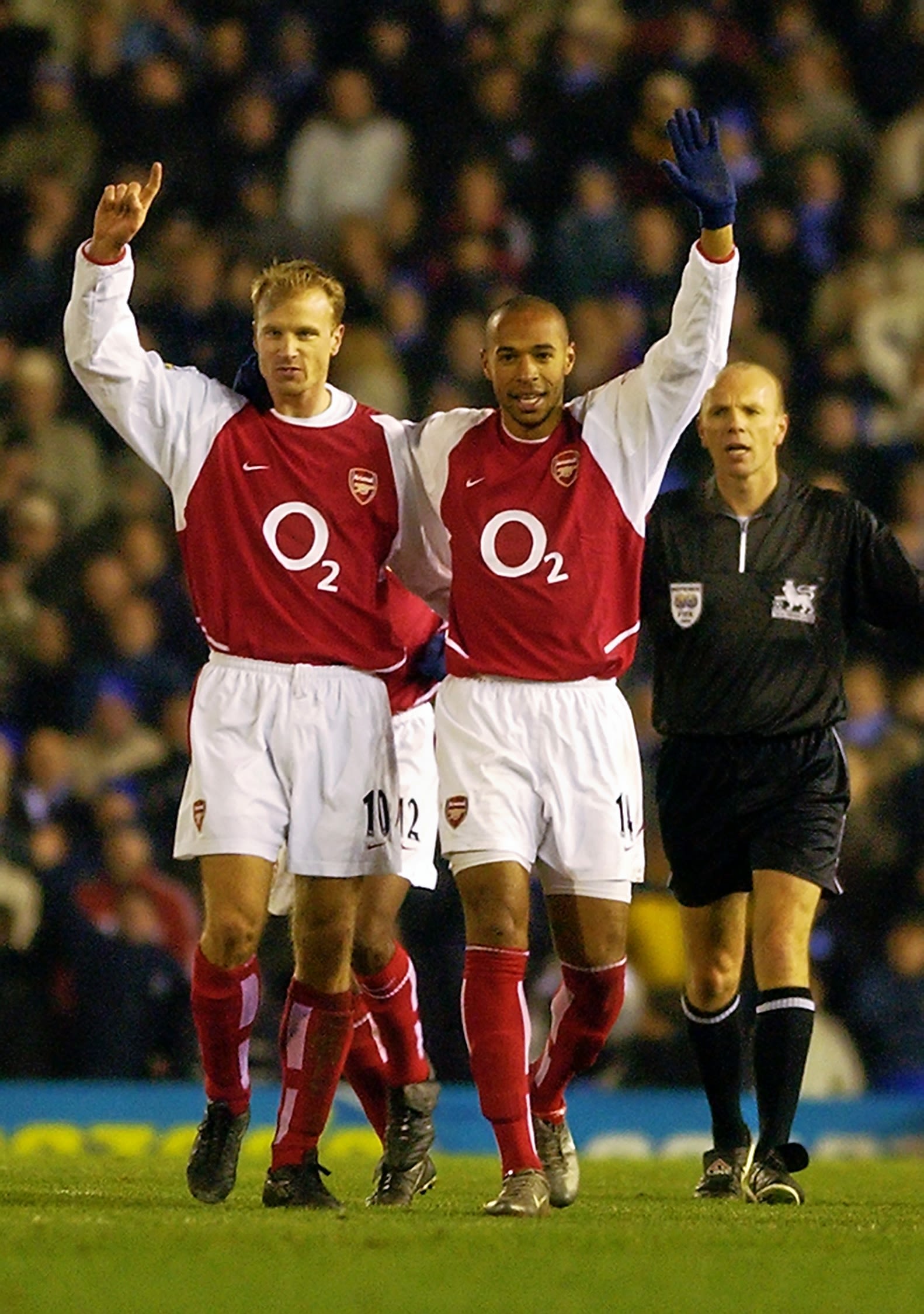
How would you sum up your partnership with Dennis Bergkamp at that time? He told us recently that he was happy to be your 'backing band' by that stage.
It’s something that evolved. It’s tough to arrive somewhere, and make sure you have the respect of your teammates. We all know that it was Dennis Bergkamp’s team. I always saw it like that. Maybe Dennis will say differently, but in my mind that’s how I saw it.
The respect I have for Dennis, it was always like that for me. He arrived before me, had already done it, so that respect for him will always stay. But then you have an evolution within the team, and at one point we all knew – Dennis included – that maybe I was going to be 'the one'.
We were a collective, don’t get me wrong, and you can’t win anything without a Lauren, a Ray Parlour, an Ashley Cole, an Edu, Kanu, Sylvain – everyone. But how do you take the keys to the team from the other guy? You have to arrive early, you have to work hard, you have to make sure that everyone understands what it means to you. To be able to take the keys from somebody like Dennis Bergkamp, and for him to say what he said – believe me you have to wake up early!
Listen, I love Arsenal, I love the fans, I love Arsène, I love everybody, but to get the respect of Dennis Bergkamp – and for him to say that about me – that will do for me.
You certainly seemed to have mutual respect for each other...
The respect came from how professional we both were. We brought the best out of each other. I used to go to training thinking, “How am I going to win the trust of Dennis and show him I can be in this team?” The only way is to show him every single day.
Also there was no better professional than Dennis. First to arrive every day, wanting to be the best at every single aspect of the game. So you look at him and think, “How can I step with him? He’s a God here, how can I be with him?”
It’s tough, so you’ve got to wake up early, you’ve got to work hard and at times it's a battle. But if you get the respect of guys like him, then you must have been doing something right.
People remember how that side blew away teams, but do you think the resilience is sometimes overlooked? You had to overcome real adversity to come back against Liverpool just after going out of the FA Cup and Champions League...
If you remember, we played Manchester United in the FA Cup semi-final, just after playing them in the league, then Chelsea in the Champions League quarter-final, and then Liverpool at home and Newcastle United away. In eight days we had four games, and nobody moved the games for us.
I didn’t play the semi-final of the FA Cup because I was absolutely dead. The squads were not the same size as they are now. We didn’t have many people on the bench. But nobody cared. We played the FA Cup semi on Saturday, Champions League Tuesday, then Premier League on Friday and again on Sunday – could we change those games? Nope, nobody cared. One English team would go through anyway, so who cares?
So we had to adjust, we had to battle, and at times it was too much. I think that first-half against Chelsea was one of the best halves we played in the Champions League. But then you saw in the second- half, we just died physically. It was the worst second-half we played we played in the history of Highbury. We couldn’t run. How can you play all those games in that space of time?
So with all that said, how did you conjure one of the all-time famous hat-tricks to beat Liverpool just a few days later?
Well, first of all I wasn’t sure if I was going to play. I had gone off injured in that Chelsea game and you can see against Liverpool I was empty. I didn’t think I could play; my hamstring was bothering me. But we were up against it, and I just said to myself, “Go for it. If I pull it, I pull it. So be it.”
We knew Liverpool had a good team, but we had to see what would happen and I had to be on the field. That was my attitude.
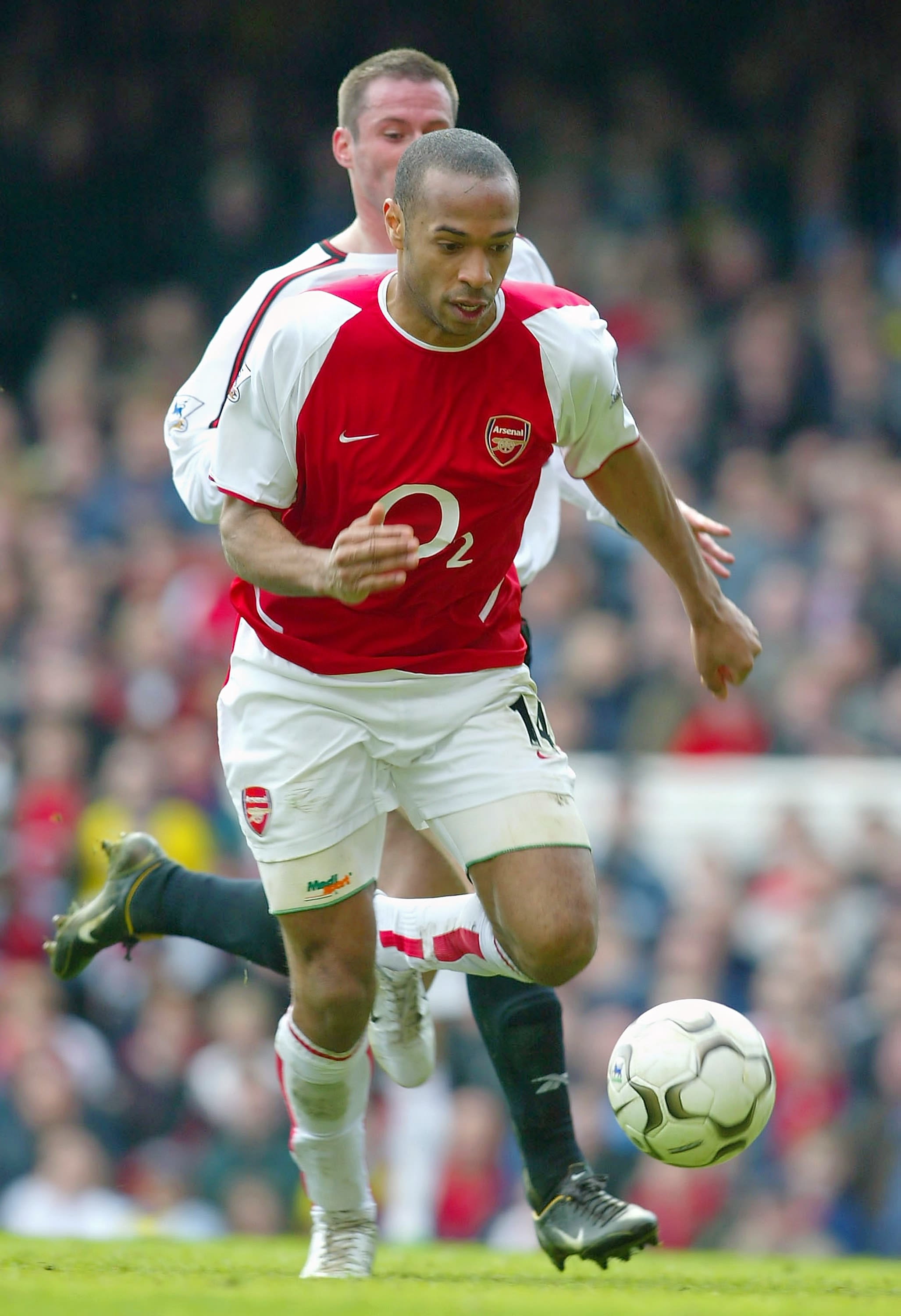
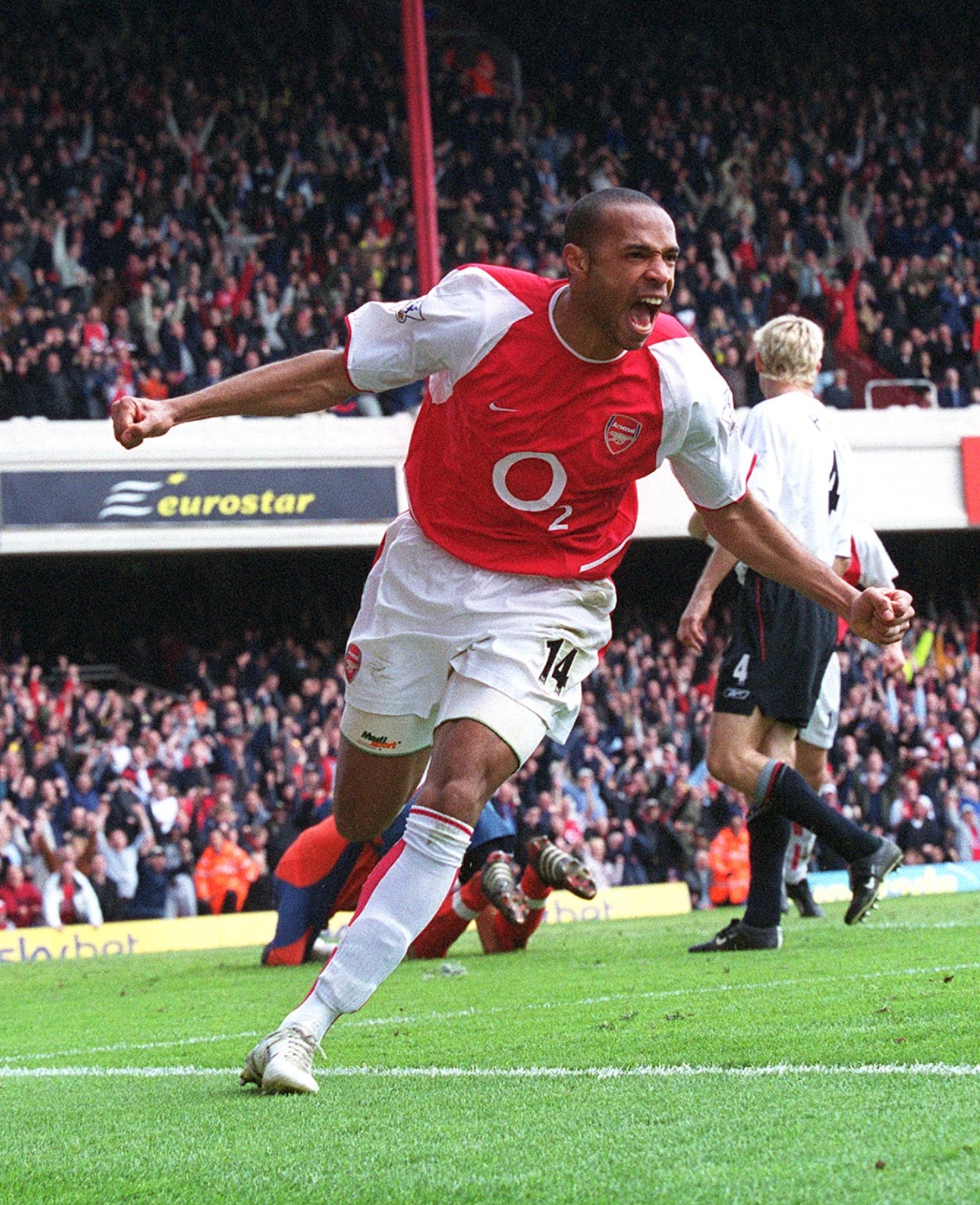
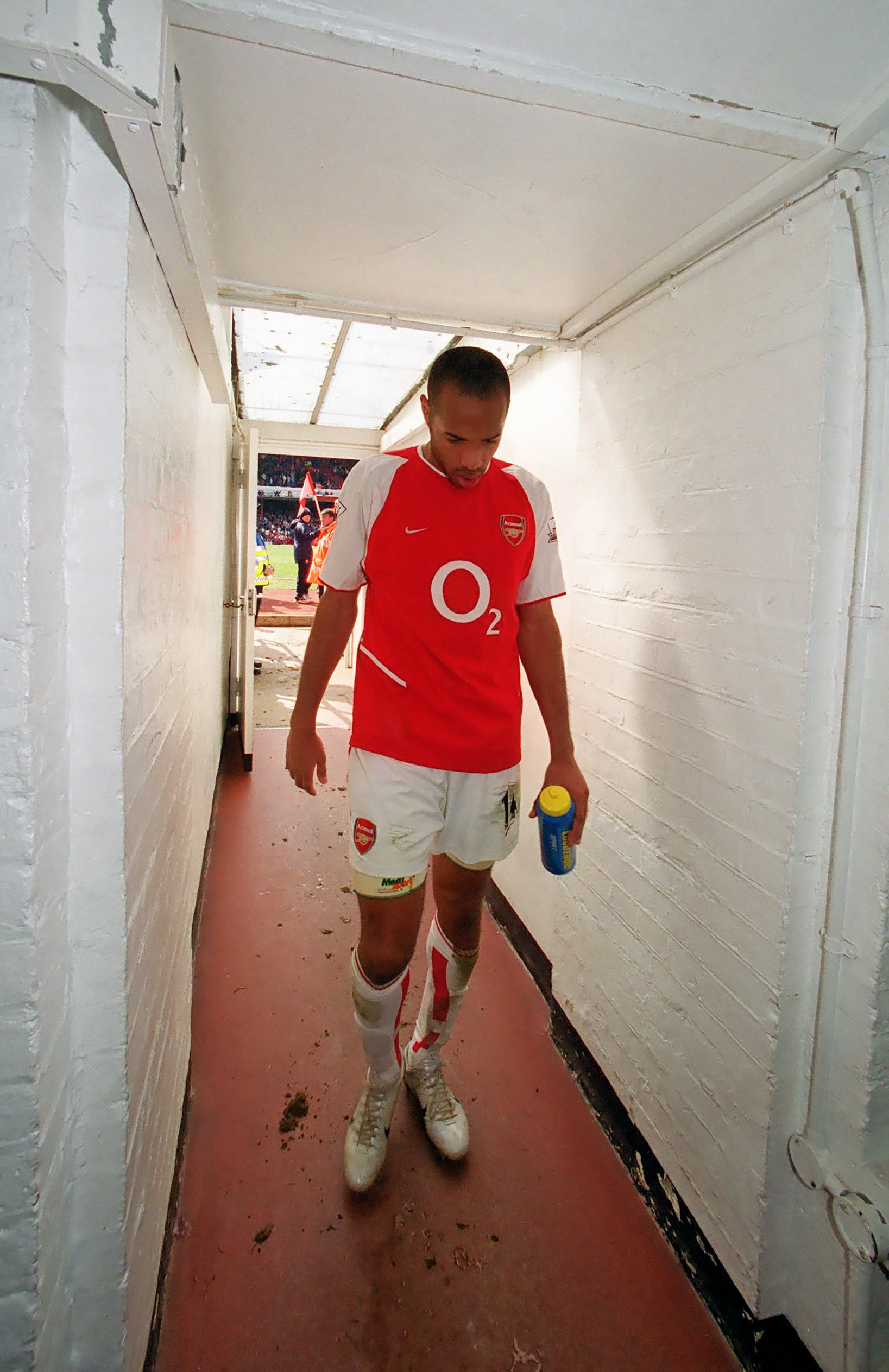
"against Liverpool I was empty. I didn’t think I could play; my hamstring was bothering me. But we were up against it"
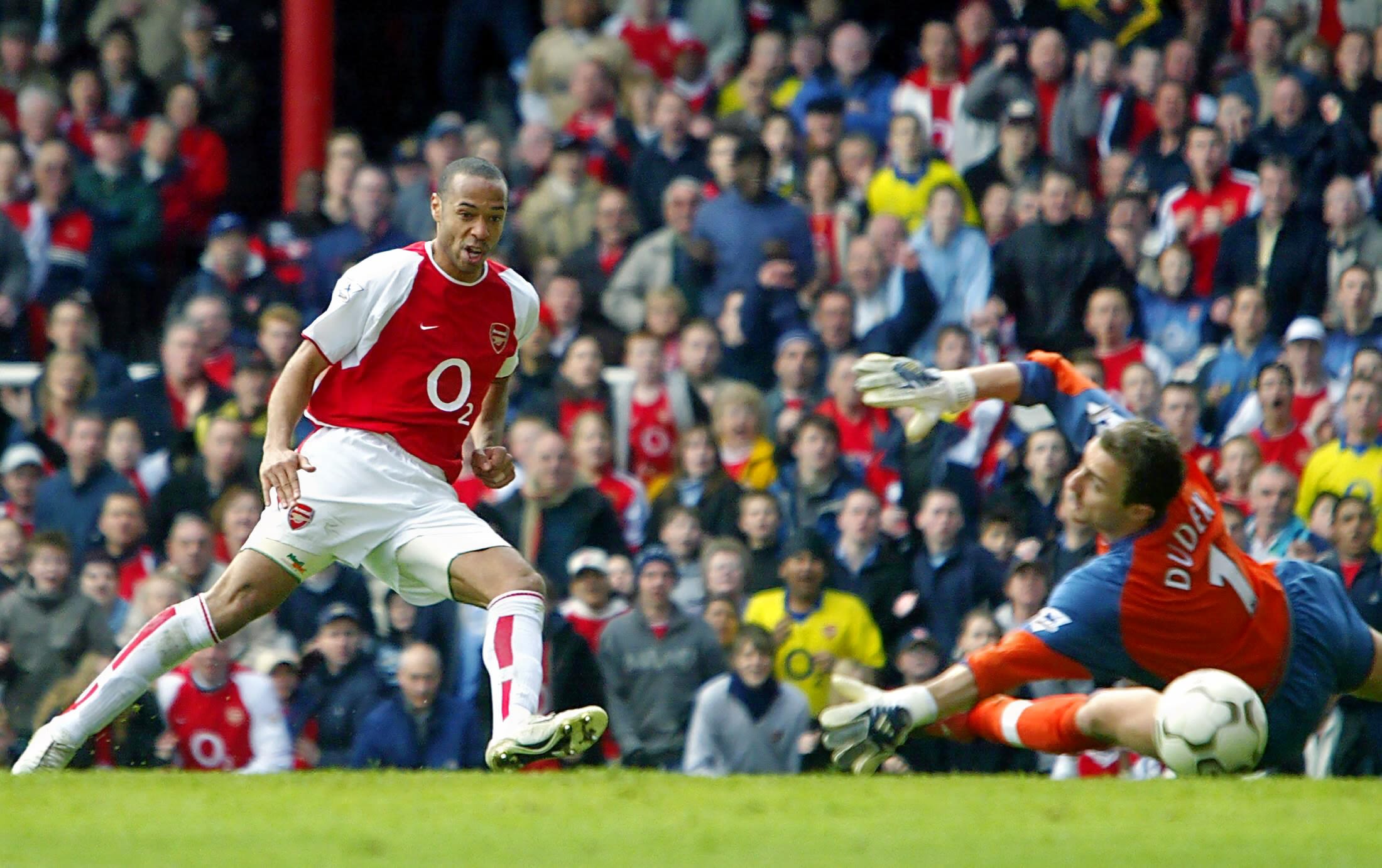
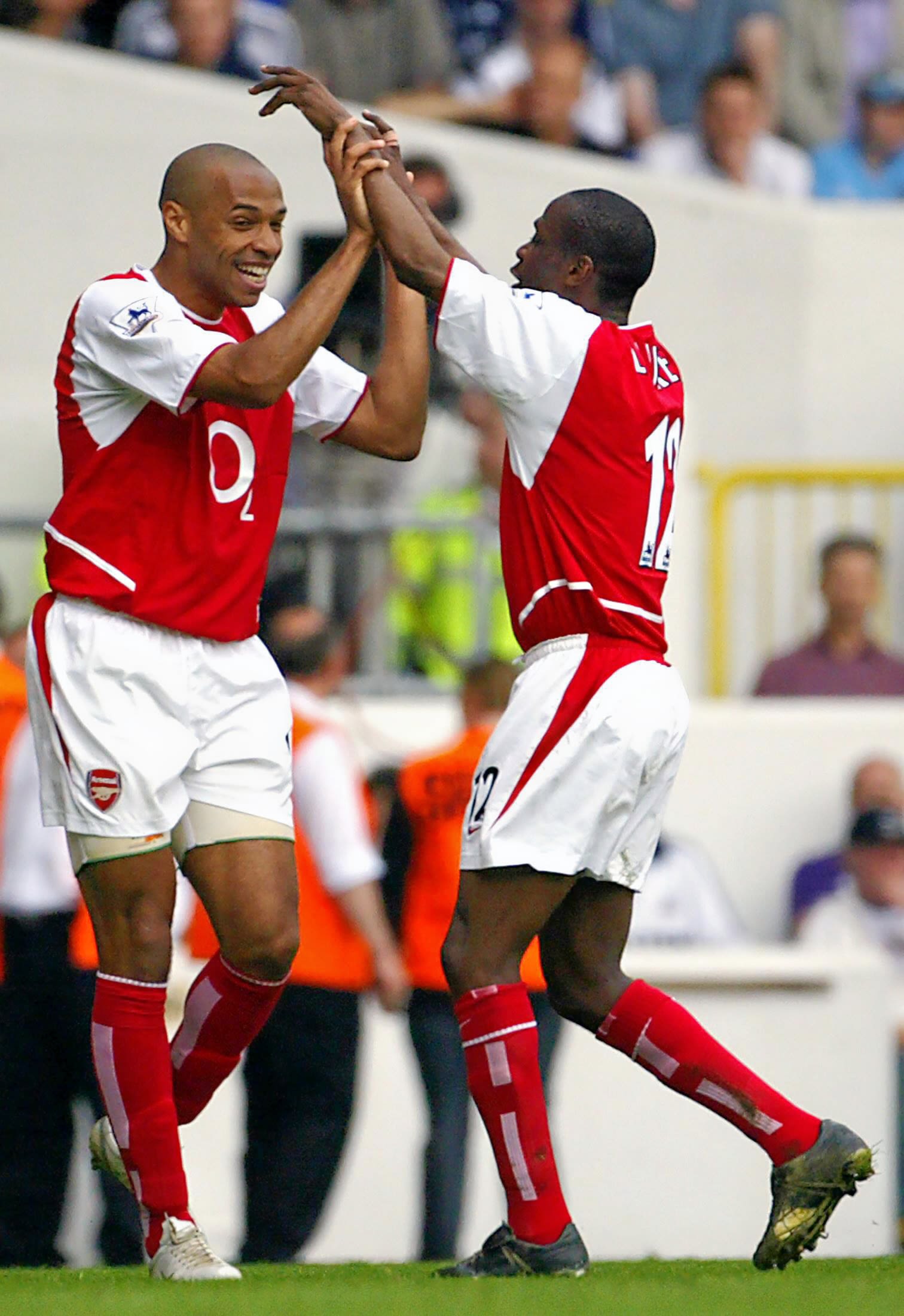
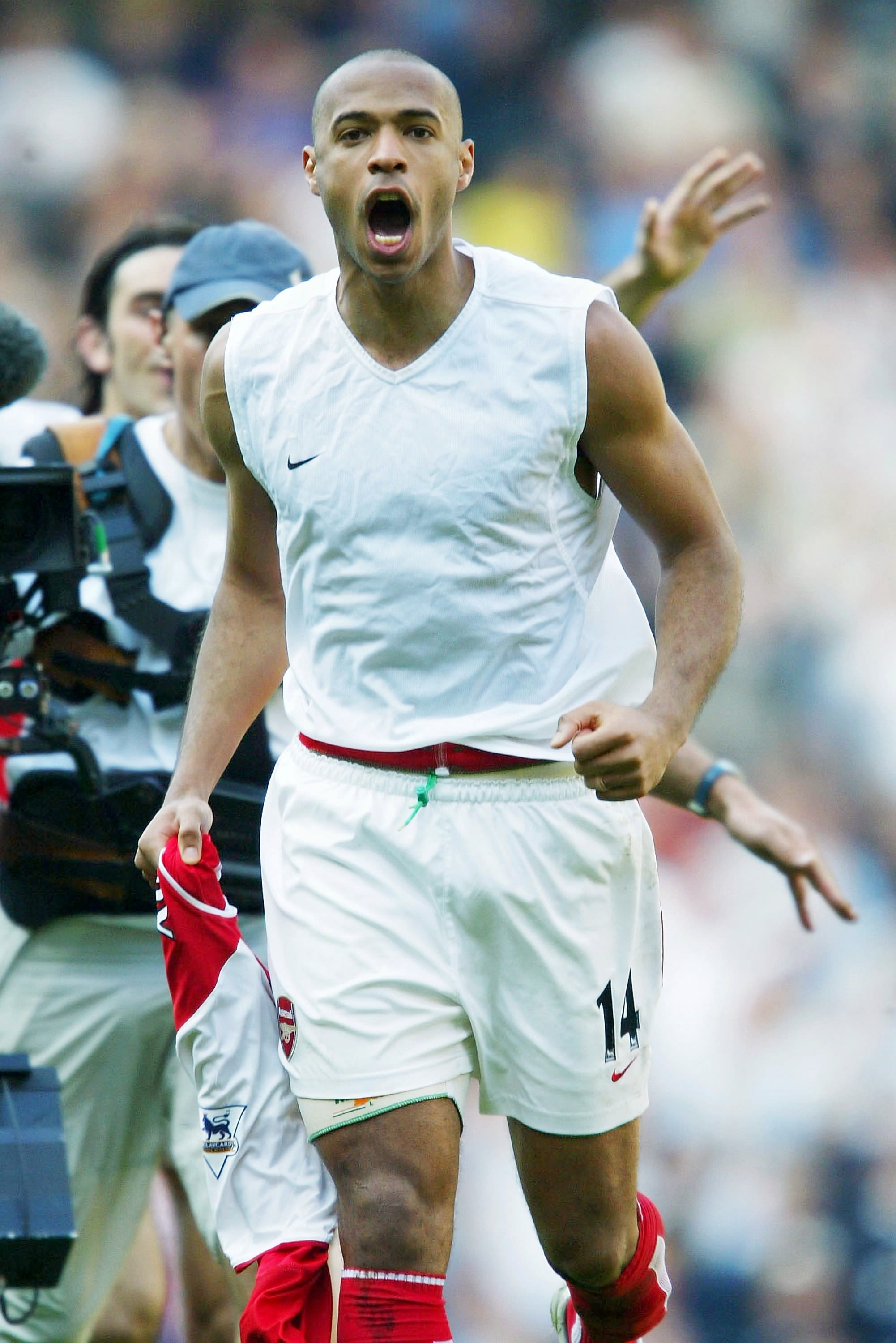
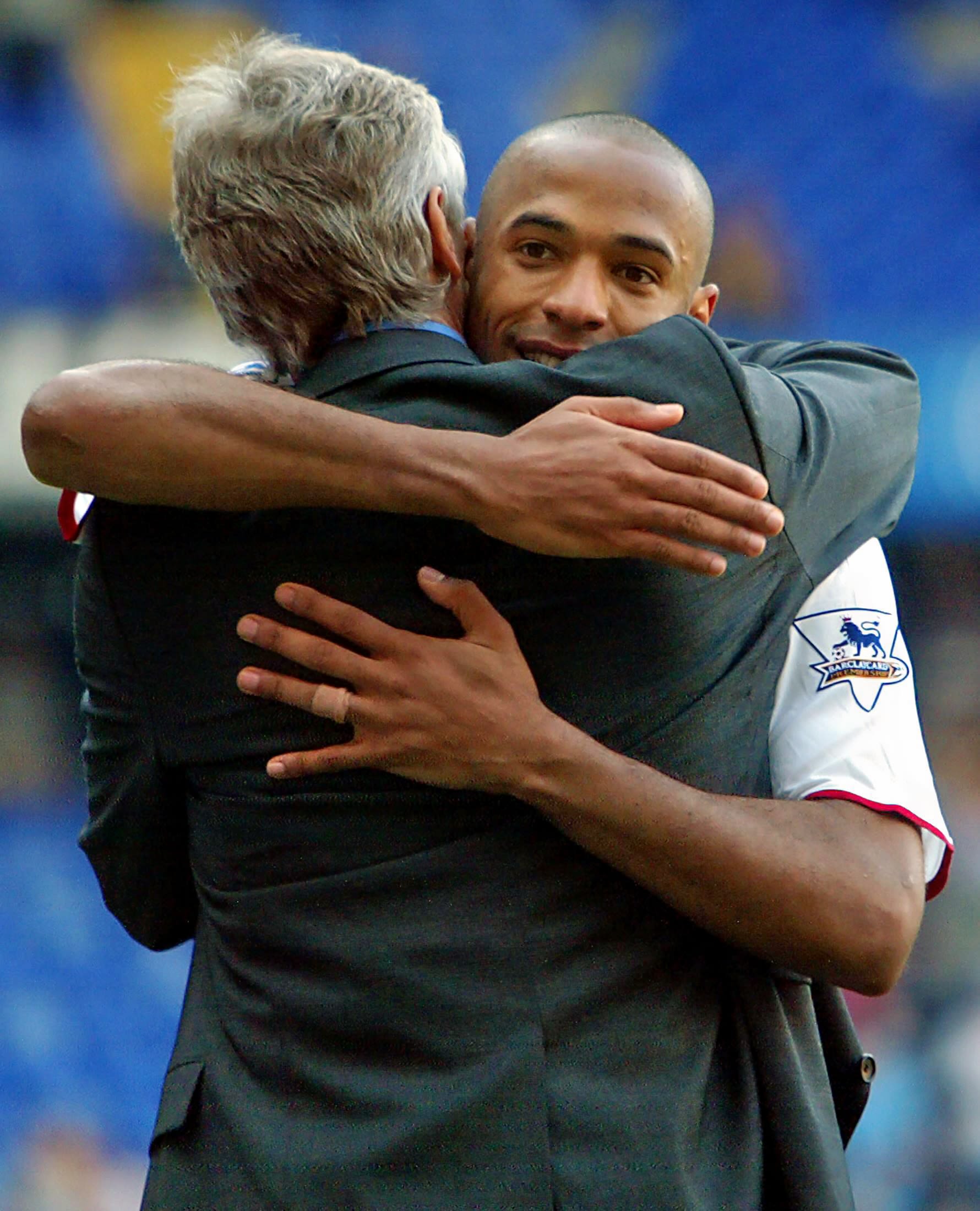
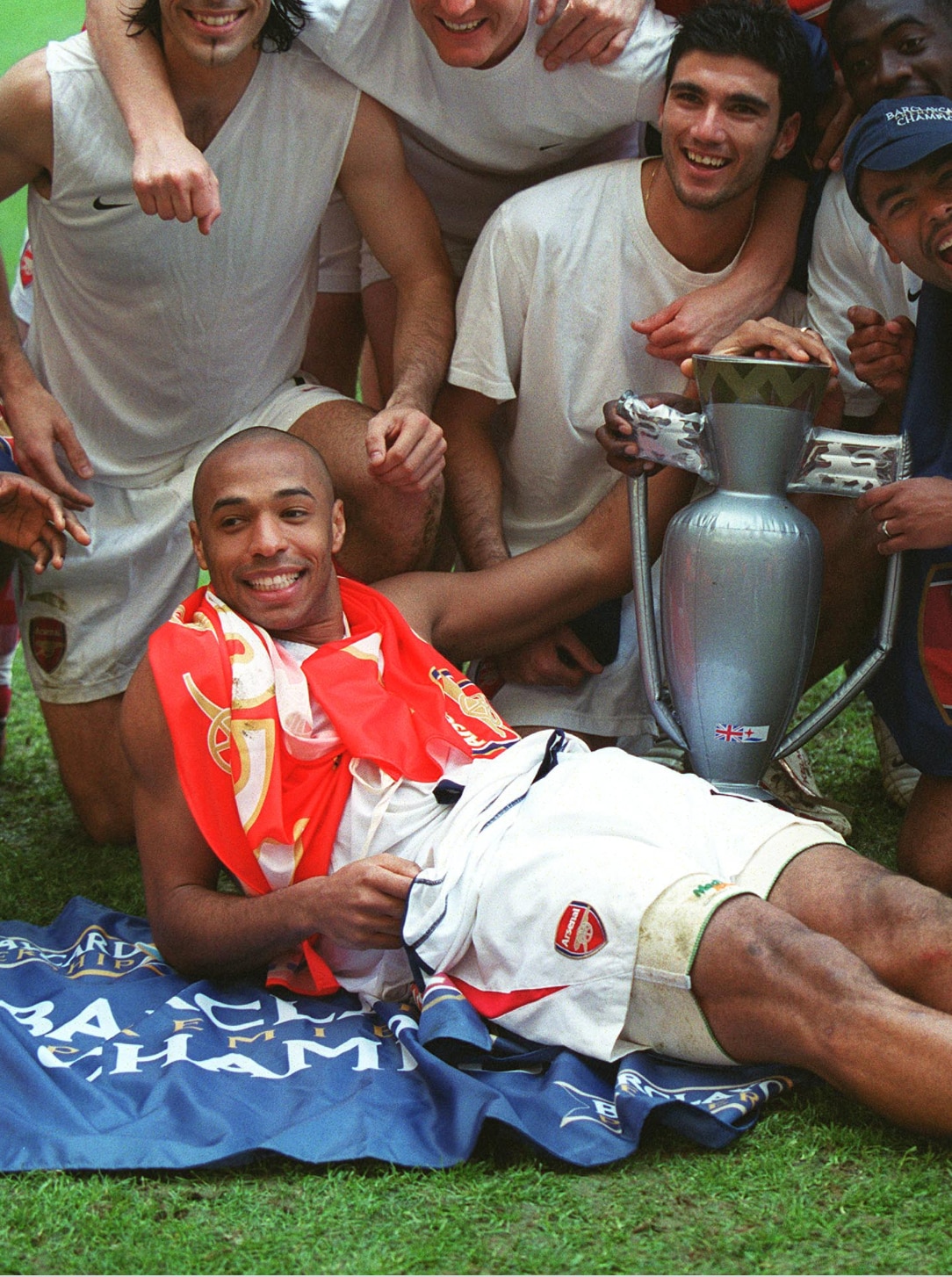
That was a huge step towards the title, and it was wrapped up at Tottenham. What did that feel like for you at the final whistle at White Hart Lane?
When it started to look like we could clinch the title there, we were already talking about celebrating there, how great it would be to win it there again. But it just stayed in the back of our heads.
Then the week of the game arrived. Living in Hampstead, the Tottenham fans liked to talk. So when I was walking in the street, I don’t know if they were trying to taunt me, but they would say: “Watch out, we’re coming for you!”
I was always like, first and foremost you’ve got that wrong. We are the ones coming because it’s at your place. But they would say “we’re coming” like I was supposed to be scared or something. It was just weird. I’ve never understood why it’s always the small dog that barks the most.
We were top of the league and I can tell you I wasn’t saying a word. Once it’s done, then yes, I talked, but only once it was done. Until then, I said nothing. You would never see me talk that way before a game – I never did it. Afterwards, yes, I could talk for England! And I would always be listening to who was talking before the game, so I could respond. Where I come from, if you talk before the game, and you lose, then you know it’s coming your way.
Everyone knows the story of how it went, and everyone in the team wanted to respect that we wouldn’t celebrate there, because we knew what would happen. We wanted to respect everyone and not create trouble. We know what happened. We went 2-0 up, then at the end, Jens Lehmann gave away that penalty. To be honest I was annoyed we didn’t win – in fact I was fuming!
So yes I was upset, but then Taricco brought me back to earth. He was jumping up celebrating, and I don’t know, maybe they are not used to that there, and he got cramps. So then I thought, “OK it’s all over now. If we see out this draw, then I will be the one celebrating.”
And that’s what we did. And by the way, we didn’t go over the top. We just went to our corner in front of our fans. That day will stay in our history forever. It’s a great day, it’s a great story.
After we won the league, it was about staying unbeaten for the remaining four fixtures. What do you remember about those games?
If we had to beat those teams – Birmingham at home, Portsmouth away – we would have done. We definitely would have won had we needed the points. In fact I was kind of upset in those games, because I was thinking, “OK, we’ve won the league, now I can score some goals and play for myself a bit!” But it was tough, and in those last four games I only scored once, against Leicester.
If we were still competing for the title, I’m convinced I would have got way more goals. We would have ended up with more points too. But it didn’t matter – we were already champions. It was just about getting by, and not losing.
That Birmingham game especially was one of the worst ever games we played at home. That day we seriously could not put three passes together – it was shocking. But it was about not losing, and we managed that.
What did remaining unbeaten for the entire season mean to you?
Nobody thought we could do it. Apart from Arsène – he said we could do it the year before, I don’t know why. But look at it now, it’s not that easy. Liverpool came close but couldn’t do it. Manchester City came close too, but it’s not easy.
Looking back at our season – Van Nistelrooy’s penalty, both games against Portsmouth, Leicester away, the only game I missed – we had to battle a few times. It was special. The boss saw it, believed in it, and we delivered. But nothing is possible without a good team spirit, and we had that in abundance. That was the key ingredient for me.
